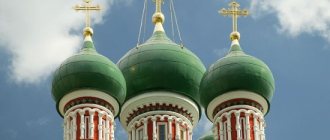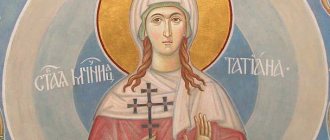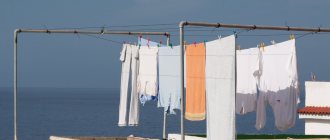What holidays are celebrated on January 20, 2022?
On January 20, 2022, the following holidays are celebrated:
It's World Cheese Lovers Day
International Penguin Awareness Day
Day of the Republic of Crimea in the Russian Federation
On this date, Orthodox Christians celebrate the Council of the Baptist and Baptist of the Lord John.
What not to do from Christmas to Epiphany
12 days from Christmas to Epiphany are prohibited:
- conduct ceremonies with rituals;
- think about bad things, show negative emotions;
- argue with others;
- speak bad words, slander;
- gamble;
- have an intimate relationship;
- refuse help and alms;
- scold and beat children and animals;
- do hard work;
- hunt;
- make prostrations;
- perform the sacrament of baptism;
- guess;
- get married and get married;
- abuse alcohol;
- overeat;
- wash;
- handicraft.
Features of the holiday, Traditions and signs on the day of Ivan the Hawk Moth, John the Baptist
- People called this day Brazhnik (brazhnik), because on this day the ancestors “drank down evil.” It was believed that on the first day after Baptism you had to drink away evil, otherwise you would shed a sea of tears. On this day they drank not only evil, but also women's happiness. Therefore, on January 20, girls were allowed to drink wine and beer. This was especially necessary for unmarried girls, so that they would have to grieve less when they were married. According to folk tradition, alcohol helped to wash away marital grief; people believed that crying in girls would protect them from tears in family life.
- Our ancestors called January 20 “Lazy Day.” On this day no hard work was done - that’s why this day was also called Lazy Day. However, on January 20, women were allowed to net for manual work - spinning, knitting, sewing and weaving. In the morning it was customary to drink consecrated water. It was believed that this would help to be healthy all year round. However, it didn’t all end with holy water - after that they organized lavish feasts with mash and beer. On this day they drank not only evil, but also women’s happiness.”
- On the “Day of John the Baptist,” believers honored the Afterfeast of Epiphany, the Memory of the Council of the Prophet, Forerunner and Baptist of the Lord John.” On this day people went to temples and prayed. There was also a tradition to buy a cross for John the Baptist. If this is done precisely on January 20, then, according to popular belief, such a cross could protect its owner from harm”:
- On January 20, fasting ends and this day is popularly called “Winter Meat Eater.” Princely Table “On this day they celebrate, eat meat and try not to sin”:
- From January 20 until Maslenitsa, weddings were held and matchmakers were called. Our ancestors called this time “wedding” weeks... Before Maslenitsa, which is celebrated in the last week before Lent, seven weeks before Easter, matchmakers are sent to the bride’s parents and weddings take place.”
- On this day, in the morning, before sitting down at the table, you need to drink Epiphany water. This is to stock up on health for the whole year. On this day, they also boil a rooster and charm its meat for their health.”
- On the Second Day of the Queen of Water, the Mother of Water did not do any work. What is served at the table on this day is: swans and swan offal.”
- “Be careful - today people are more suggestible than ever and can agree to anything. Don't give in to temptation.
Twelfth Orthodox Church Holidays
They are called from the Old Church Slavonic word “twelve”, which means “twelve”. According to the laws of the Orthodox Church, these are the most significant holidays after Easter; they are dedicated to the memory of important milestones in the life of Jesus Christ and the Most Holy Theotokos on Earth. Holidays are spread out over time, which gives a person the opportunity to attend a service, remember an important event in prayer, and increase spiritual self-development. A person is always imperfect, he needs to be equal to the saints, to purify his soul.
Nativity
January 7 is a holy day, the birth of Jesus Christ. This is a day of remembrance of the Savior’s coming to people, who through his life showed how people mired in sins and illnesses can be healed. The Roman emperor sent Joseph, the husband of the Virgin Mary, to take a census in Bethlehem. They spent the night in the cave where Baby Jesus was born. The first to come to bow to the Lord were the shepherds and the wise men. Rumors about the birth of Christ reached the Jewish king Herod. He feared that the birth of Christ would undermine his power and sent soldiers to kill all the newborns in Bethlehem. The miracle warned Joseph and Mary, and they and Jesus fled to Egypt.
Epiphany
The Church calls this holiday the Epiphany of the Lord; on January 19, believers remember the waters of the Jordan River, where John the Baptist baptized Jesus Christ. The day was established as a church sacrament, now people use it to become Orthodox. Tradition says that the Holy Spirit descended from heaven to Christ like a dove, and a voice was heard from heaven: “This is My beloved Son, in whom I am well pleased” (Matthew 3:17).
Presentation of the Lord
The Old Slavonic word “meeting” is translated “meeting”. In Orthodoxy, it symbolizes the meeting of the Infant God with the representative of the Old Testament Church, Simeon, who led him into the temple to serve God. To this day, a meeting with something Old Testament means a symbol of contact with God.
Annunciation
The holiday is associated with the bringing of “good news” by Archangel Gabriel, who informed Mary that She would be the Gate, through which the Savior would come to man. He named the name of the future Son of God - Jesus. Saint Mary bowed and agreed to take on the high mission.
Palm Sunday
The holiday of the Lord's entry into Jerusalem was introduced in the 4th century; it is now called Palm Sunday. For the arrival of the Son of God in the city, the residents prepared a celebration - they covered the road with palm branches, where He rode on a small donkey, setting an example of modesty. In Russia, the palm tree was replaced with willow branches, which manage to bloom fluffy cones on calendar days; they are carried to church, consecrated, and kept at home near icons.
The consecrated willow has healing properties; people touch the branches with wishes for health, and place them at the bedside of the sick. According to the old custom, children are lashed with branches of consecrated willow, driving away illnesses from them.
Herbalists add crushed dry willow buds to medicinal decoctions to treat people. The power of willow is in healing, giving physical strength, courage, courage. They make amulets for young men and place willow buds in treasured bags.
Ascension of the Lord
The Feast of the Ascension is celebrated after the Resurrection of Christ. The risen Jesus spent 40 days telling his disciples about the Kingdom of Heaven. Then the Lord ascended into heaven, and to the surprised Apostles he said words that are now familiar: “I am with you always, until the end of the age. Amen” (Matthew 28:20). The holiday shows the fate that a person who keeps the Covenants of the Church can achieve.
The Holy Trinity
The birthday of the Orthodox Church is celebrated on the 50th day after Easter. According to Holy Tradition, the Holy Spirit appeared to the apostles, giving them the ability to preach the faith in different languages.
Transfiguration
According to legend, Jesus Christ ascended Mount Tabor with the Apostles Peter, James, and John. During their prayer, Christ’s clothes and face became bright, the prophets Moses and Elijah appeared before them and began to talk with the Lord. Jesus forbade the Apostles to talk about this until His resurrection. However, this particular incident speaks of the divine origin of Christ, which those close to him only guessed at until the end of His life on Earth.
Dormition of the Blessed Virgin Mary
The hour of Saint Mary's death has come. The apostles gathered to say goodbye to the Mother of the Savior. She was buried in the tomb where her parents and husband were buried. But in the evening She was resurrected, appeared at the dinner of the Apostles, becoming like the Son, and with them ascended into heaven.
According to popular wisdom, what should you not do on January 20, 2022?
- You can't do hard work. For this reason, January 20 is also called Lazy Day. If a stranger wants to give you a gift, refuse to take it, otherwise he will pass on his misfortune, illness or other problem to you. You cannot eat meat dishes on January 20th. You cannot walk around in dirty clothes and count small coins, otherwise you will have a financial crisis. Copied from the site: https://www.astromeridian.ru
- The feast should not start with the first courses, so as not to lose the chance to achieve your goals this year.
- Don't sit back and be lazy today. If there is no work, try to find something to do around the house. Otherwise, you risk spending a year in poverty.
Wednesday
Laundry is quite an important task for a housewife. If you believe some signs, things that were washed on Wednesday may unexpectedly disappear or be torn.
When you hang out items washed on Wednesday, you may find that they are still dirty. Also, laundry on Wednesday, according to signs, can lead to things quickly becoming unusable and worn out.
There is another ancient sign that if on the third day of the week a lonely girl starts washing, she will marry a man who drinks. In addition, if on Wednesday, while washing, you accidentally wet the hem, there is a risk of remaining alone for life. There are few people willing to take risks, so some women adhere to this sign even today.
Can I do laundry, clean the house, sew January 20, 2022?
The ban on cleaning on church holidays came to us from the fourth commandment of the decalogue of Moses: “Fourth commandment: Honor the seventh day. Work six days, and the seventh day is for the Lord.” So, from ancient times, people revered not only the Sabbath (for them it was the seventh day before the resurrection of Christ), but also any other holiday. Jews do not work on Shabbat, and this ban on work on the holiday has these very common roots. Therefore, on holidays you need to devote yourself to prayer and communication with God, to clean your inner home - your soul.
However (!), it is important to remember that, as Christ says, “man is not made for the Sabbath (holiday), but the Sabbath (holiday) is for man” (Mark 2:27), and not to turn the house into an abode of uncleanness, justifying oneself in any way "spirituality". Spirituality in this case is to take a mop and clean, without forgetting about God. Reading a short prayer to yourself, for example, the Jesus Prayer, will help you not to forget about God.
And if you blindly follow traditional instructions, it is easy to turn into the same Pharisees whom Christ constantly reproached for the fact that they honor such institutions more than the institutions require. Spoiler - it’s better not to argue with zealous grandmothers on this topic; zealous keepers of legends can even fire you with a word.
Fourth Commandment
In this commandment, God calls people to work 6 days a week, but the 7th day should be devoted to serving the faith and performing holy deeds. The following are considered deeds pleasing to God:
- take care of the salvation of the soul;
- enlighten the mind and heart with religious knowledge;
- engage in godly conversations;
- help the poor;
- comfort the mourners.
The Sabbath rest was given by God to man to restore spiritual strength and perform good deeds. By eliminating daily hassles, a person is spiritually renewed and comprehends the purpose of life. Work is important in the integrity of aspirations, but the salvation of the soul is considered more important.
Cleaning recommendations
In order for cleaning to proceed in the best possible way, it is worth remembering a few simple rules:
- The rubbish is not swept out of the door.
- They sweep and wash the apartment from the far corner to the entrance.
- According to Feng Shui, when cleaning, you need to activate all 5 elements: use a plant broom, sweep away dust and sand, wash floors and things with water, ventilate the room and burn everything unnecessary. To comply with safety precautions in modern apartments, fire can be used by fumigating the room with an aromatic mixture.
- After cleaning, you should thoroughly wash your hands or take a shower.
This is interesting: in the old days, the saying “not to wash dirty linen in public” was taken literally and household waste was burned in ovens.
Many people like to clean up, feeling internal cleansing and putting their thoughts in order. They say that the desire to clean awakens with mental experience, but you need to get used to cleanliness from a young age. Simple signs help to maintain your territory in harmony physically and sacredly.










